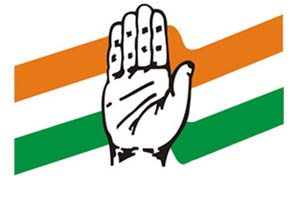BJP government anti-poor, anti-farmer, says Congress, Delhi Election, Delhi Election 2015, Delhi Assembly Election 2015, Delhi Election News
- Details
- Category: Delhi political News
- Last Updated: Saturday, 07 February 2015 15:41
BJP government anti-poor, anti-farmer, says Congress
New Delhi, (IANS) Accusing the BJP-led central government of "killing the purpose and intent" of the National Food Security Act, 2013, the Congress Saturday said it was a "crude attempt to make a mockery of the crores of toiling poor of India by the BJP".
The Congress also criticised it for giving cash to the poor instead of subsidised food grains.
Addressing a press conference here, Congress spokesperson Randeep Singh Surjewala said the BJP government had become anti-farmer and anti-poor.
"The BJP government is preparing to kill the purpose and intent as also soul and spirit of the Food Security Act by reducing the number of eligible beneficiaries from 67 to 40 percent," he said.
The Congress leader held Prime Minister Narendra Modi responsible for it saying that nobody could have done it without his permission.
"This recommendation (of reducing number of eligible beneficiaries) was made by a committee constituted to examine the Food Security Act by Modi," he said.
He criticised the government for making an "anti-farmer" amendment to the Right to Fair Compensation and Transparency in the Land Acquisition Act, 2013 by way of an ordinance.
"It exposes the anti-poor and farmer face of the ruling dispensation," Surjewala added.
The Congress leader also questioned the BJP whether its "intent and motive behind supporting the Food Security Act, 2013 in parliament was to subsequently kill its soul and spirit on formation of the BJP government".
He said that when the Shanta Kumar committee, set up to examine the Food Security Act and to reconstitute the Food Corporation of India (FDI), has proposed direct cash transfer of food subsidy even to the remaining 40 percent beneficiaries instead of providing food grains over the next three years, how the poor would buy food grains at the prevailing market prices with the small amount of subsidy.
The Congress leader also wondered that when all this was being done whether the government would also stop procuring wheat, paddy and other crops at the Minimum Support Price to maintain its existing well defined food stocks after the commencement of the direct cash transfer policy.
"It's all inter-linked, the government must explain to the nation what its plans were," he said.




